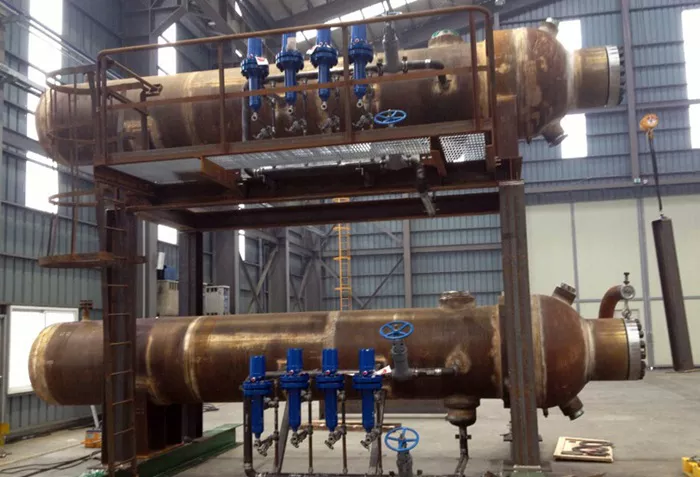Fuel heaters are essential components in various industries, ensuring the proper flow and efficiency of fuel in different applications. These devices prevent fuel from thickening or gelling due to low temperatures, enhancing combustion and reducing energy waste. Fuel heaters play a crucial role in improving engine performance, minimizing emissions, and protecting fuel systems from damage caused by cold weather.
This article explores the different types of fuel heaters, their applications, working principles, benefits, and considerations when choosing the right one for specific needs.
What is Fuel Heaters
Fuel heaters are devices designed to heat fuel before it enters the combustion chamber of an engine or an industrial burner. They ensure that the fuel remains at an optimal temperature for efficient combustion. The need for fuel heating arises from the nature of different fuels, especially diesel, which tends to thicken in cold temperatures.
Fuel heaters are commonly used in:
- Diesel engines
- Industrial furnaces
- Marine vessels
- Aircraft
- Power plants
Types of Fuel Heaters
Fuel heaters come in various designs, each serving specific applications. The main types include:
1. Electric Fuel Heaters
Electric fuel heaters use electrical resistance to generate heat and warm the fuel. These heaters are commonly used in:
- Diesel engines
- Fuel storage tanks
- Aircraft fuel systems
Electric fuel heaters are easy to install and offer precise temperature control. However, they require a reliable electrical power source to function effectively.
2. Coolant-Based Fuel Heaters
Coolant-based fuel heaters use engine coolant to transfer heat to the fuel. These heaters are commonly found in diesel engines and heavy machinery. The working principle involves circulating hot engine coolant around the fuel line, which warms the fuel as it flows through the system.
3. Fuel-Operated Heaters
Fuel-operated heaters use a small amount of fuel to generate heat, which is then transferred to the main fuel supply. These heaters are beneficial in remote locations where electricity is unavailable. They are widely used in marine applications and off-grid industries.
4. In-Line Fuel Heaters
In-line fuel heaters are installed directly in the fuel line and heat the fuel as it passes through. These heaters are ideal for applications requiring consistent fuel temperature, such as generators and industrial burners.
5. Fuel Tank Heaters
Fuel tank heaters are installed inside or outside fuel storage tanks. They maintain fuel at an optimal temperature, preventing wax buildup and ensuring smooth flow. These heaters are crucial for fuel storage facilities and transportation systems operating in cold climates.
How Fuel Heaters Work
The working principle of fuel heaters depends on the type of heater used. However, the general process involves:
- Detecting low fuel temperatures using sensors.
- Activating the heating element or heat transfer mechanism.
- Warming the fuel to the desired temperature.
- Ensuring proper fuel flow and combustion.
Benefits of Fuel Heaters
Fuel heaters provide several advantages, including:
1. Improved Combustion Efficiency
By maintaining the correct fuel temperature, fuel heaters enhance combustion, leading to better engine performance and fuel economy.
2. Prevention of Fuel Gelling
Diesel and other fuels tend to gel in cold weather. Fuel heaters prevent this issue, ensuring uninterrupted fuel flow.
3. Reduced Emissions
Properly heated fuel burns more completely, reducing harmful emissions and contributing to environmental sustainability.
4. Enhanced Engine Protection
Fuel heaters prevent the formation of deposits in fuel injectors and combustion chambers, extending engine life and reducing maintenance costs.
5. Increased Reliability
Vehicles, generators, and industrial equipment equipped with fuel heaters operate more reliably in extreme temperatures.
Applications of Fuel Heaters
Fuel heaters are used across various industries, including:
1. Automotive Industry
Diesel trucks and buses use fuel heaters to prevent cold-start issues and ensure smooth engine operation.
2. Marine Sector
Ships and boats rely on fuel heaters to keep their engines running efficiently, even in freezing conditions.
3. Aviation Industry
Aircraft use fuel heaters to prevent fuel freezing at high altitudes.
4. Power Generation
Generators and power plants incorporate fuel heaters to ensure a steady fuel supply, especially in winter.
5. Industrial Heating Systems
Industries that use large-scale burners and furnaces integrate fuel heaters to optimize fuel performance.
Choosing the Right Fuel Heater
Selecting the appropriate fuel heater depends on several factors, including:
- Fuel type: Different fuels require different heating solutions.
- Application: Industrial, automotive, or marine use dictates the type of heater needed.
- Power source: Availability of electricity or alternative fuel sources.
- Operating temperature range: The required heating level for optimal performance.
- Installation space: Some heaters are compact, while others require larger setups.
Maintenance of Fuel Heaters
Proper maintenance ensures the longevity and efficiency of fuel heaters. Essential maintenance practices include:
- Regularly inspecting heating elements for wear and tear.
- Cleaning fuel lines to prevent clogging.
- Checking electrical connections for safety.
- Replacing worn-out components promptly.
- Monitoring fuel temperature settings.
Conclusion
Fuel heaters are indispensable for ensuring the smooth operation of engines and industrial systems, especially in cold environments. With various types available, selecting the right fuel heater depends on specific needs and operational conditions. By preventing fuel gelling, enhancing combustion, and improving overall efficiency, fuel heaters play a crucial role in multiple industries, ensuring reliability and performance in challenging conditions.

